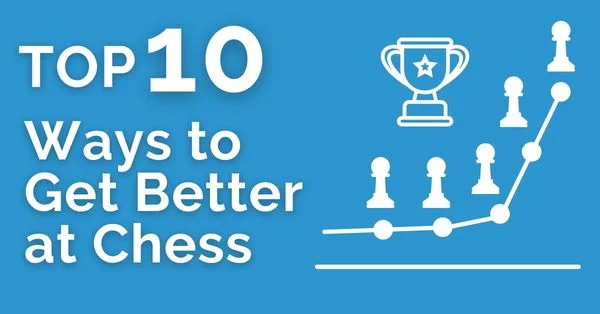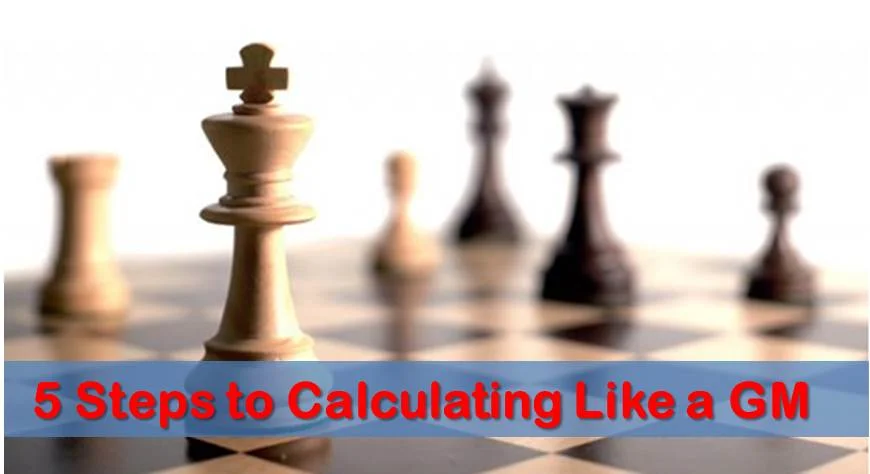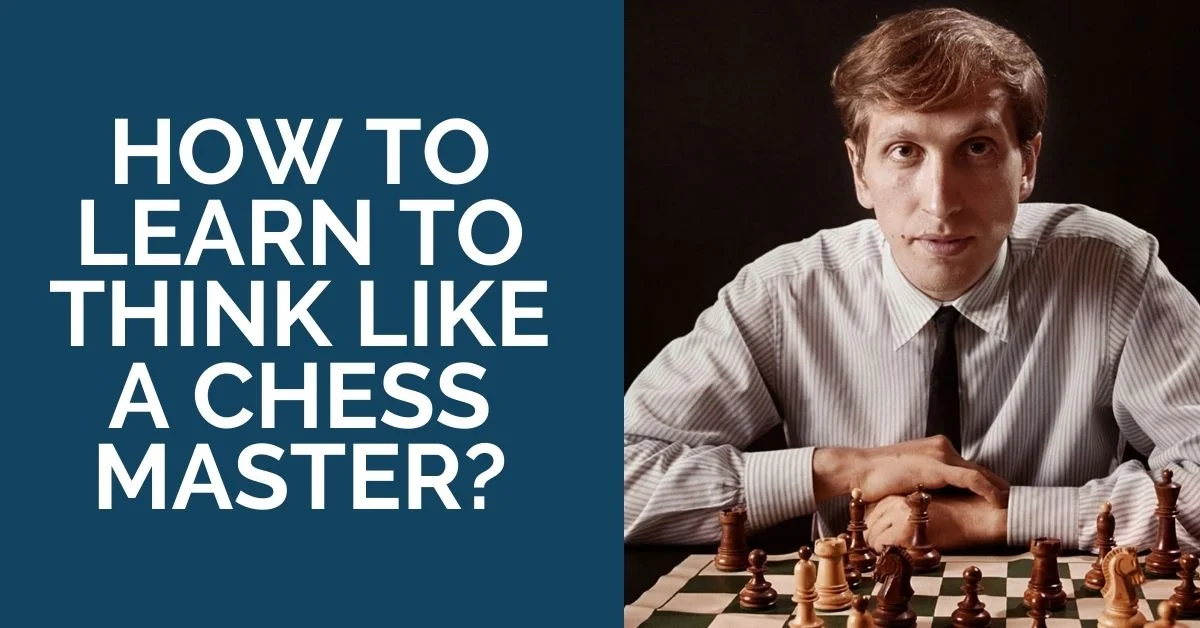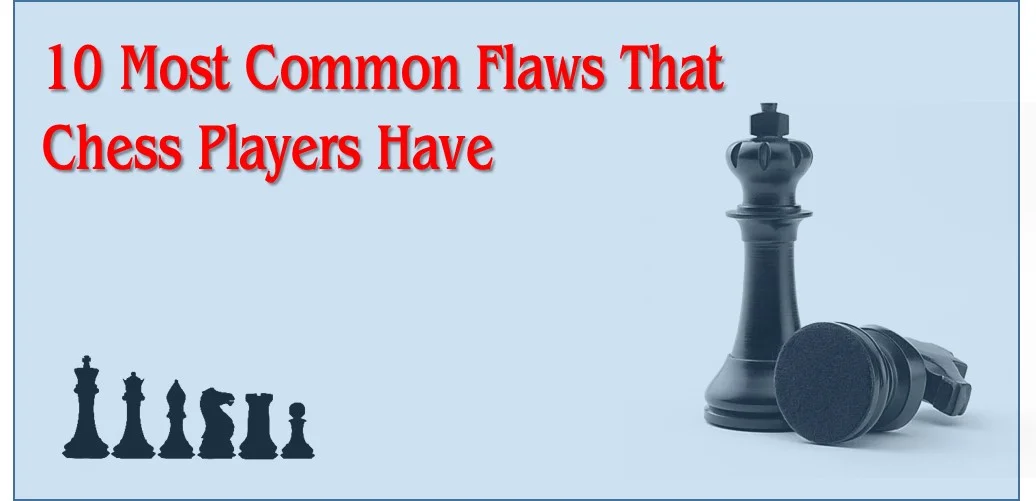Top 10 Ways to Get Better at Chess

All chess players want to get better at chess. Whether you are a novice, beginner, club player, or even a titled player, improving at chess is probably one of your priorities.
As with any skill, chess skill can also be trained and improved upon.
In this article, we will take a look at 10 ways which you use to get better at chess.
1. Train Tactics and Strategy as One
Most players regard moves as being either tactical or positional. They like to divide and distinguish them, putting them in separate boxes. The reason they do that is because that makes studying easier. For tactics training, they look at white to move and win positions to train tactical skills while also looking at master games with positional themes to understand what strategy is all about.
Albeit there is nothing wrong with this approach, in reality, things are not so clear-cut. As you get better at chess and begin to move up the rating ladder, your opponent won’t hand over wins by simple tactical mistakes. Tactics and strategy are deeply intertwined with each other.
A good way to train this approach is to choose games with quiet openings, games with more positional lines, and quiet play. Then after each move, try to find a tactical reason.
2. Learn Pawn Structures
Want to get better at chess? It is most efficient to study standard or typical situations as they are more likely to arise in tournament practice. And when we look for the most standard, most common positions.
We should look for the most typical pawn structures. As Philidor said “Pawns are the soul of chess”, In this modern age of computers this certainly still holds s certain degree of truth in it.
Why is this so?
When you know well the characteristic features of various typical pawn formations, you are better prepared for any eventualities in case your opponent plays a ‘non-book’ move. You still know the plans and piece placements, so you can reverse engineer the ideas and find the most optimal plan for the new position.
3. Do Visualization Training
Chess visualization training is a technique that involves imagining the moves and positions of the pieces in your head, without looking at the board or using any physical aids. Calculating variations in chess itself is a huge topic about which a lot can be said.
As an improving player your 2-3 move calculation should be honed to perfection To do that visualization is essential.
There are two proven ways to do visualization training:
- Blindfold chess: This is where you play a game of chess without seeing the board. You have to announce your moves and keep track of the position in your mind. You can do this by playing against another person, a computer, or yourself.
- Replay games: This is where you try to recall and reproduce a game of chess that you have played or studied before, without looking at the notation or the board.
4. Study Master games
Another approach that you can incorporate into your regime is to study master games. Here it should be mentioned that there are two ways to go about this: You can either skim through the games or sit down and deeply analyze the game.
Both approaches are beneficial and you will certainly get better at chess.
5. To Get Better at Chess: Play!
A person can learn all the knowledge they want, but if they don’t practice and develop the skill, it is of no use. If you want to get better at chess sure you can study but it is also highly important that you play. In the present day with chess being so popular you can find many opponents to play online.
So why is playing important? First of all, it’s like removing the training wheels of a bicycle. You get to go in and feel what a chess game is really about. No external help or support. It’s just you and the pieces. You come away with lots of knowledge and experience about your play and philosophically speaking, about yourself as well.
Hence make sure to play games frequently if you want to get better at chess.
6. Analyze your games
Everyone is different in their understanding of their game and makes different mistakes. Analyzing your games especially your losses will tell you a lot about your shortcomings in certain scenarios. It will be hard to play through a game that has difficult emotions but it will certainly pay you off in the long term.
If you want to get better at chess, analyze your games. Find out the mistakes and create a plan around how to rectify them.
Analyzing chess games should be a disciplined process and you should be careful about how you use a chess engine. It will tell you what mistake happened but it won’t tell you why. That you will have to figure it out yourself or you can use the help of a coach.
7. Quantity and Quality
Players receive many different kinds of advice on this matter. Whether to focus on less no. of games but with a high degree of concentration (let’s say 2 games per week) or study and play as frequently as possible. Well from a study it was concluded that people who practiced a skill more frequently than others got much better at it than others.
Hence, it is also important to focus on the volume of the training. Skimming through games is an underappreciated way to get better at chess. By skimming through hundreds of master games you will be able to build a huge internal database of patterns in different positions. At the same time, make sure to get in some deep-dive chess sessions as well.
8. Plan your training
A very common mistake by club players is to train randomly. This is commonly due to the search for instant gratification by gaining a few Elo points. But looking at the bigger picture this approach doesn’t bode well for your chess. You should have a structured training regime.
You can use many different GOAL setting approaches and find out what’s best for you. Sure, in the short term, you may not see immediate improvement but in the long term, you will most definitely become a stronger player.
There are many sources for a long-term structured training program to get better at chess. You can set one up for yourself with the help of a coach or you can buy a course on this and follow their advice.
9. Develop a Structured thinking process
A chaotic thinking process is not helpful during a chess game. It leads to common mistakes like seeing ‘ghosts’ in the positions or re-calculating variations over and over again.
Therefore, developing a structured thinking process during a chess game is essential for improving your skills and avoiding blunders. There are many step-by-step thinking process guides or courses out there that you can refer to. Try different approaches and follow what works for you the best.
10. Solve Chess Studies
A not-so-common way to get better at chess is to solve chess studies. Unlike regular chess puzzles, composed studies are not taken from actual games, but are artificially constructed by a composer.
They often have a clear theme, such as a checkmate, a stalemate, a draw, or a material advantage. Composed studies can range from simple to complex and test various aspects of chess skills, such as tactics, calculation, intuition, creativity, and endgame knowledge.
https://thechessworld.com/store/product/elements-of-dynamic-play-with-im-boroljub-zlatanovic/










Comments: